Nursing informatics is a rapidly evolving specialty that blends nursing science, computer science, and information technology to improve patient care and healthcare outcomes. Nurse informaticists are key contributors to the design, implementation, and optimization of health information systems like electronic health records (EHRs), helping ensure that technology aligns with and supports clinical workflows. As healthcare continues to embrace digital transformation, the demand for skilled nurse informaticists is on the rise—driven by the need for effective electronic health record (EHR) systems and data-driven care.
This growing field offers competitive salaries, with more than half of nurse informaticists earning six figures, making it an appealing career path for tech-savvy nursing students interested in combining clinical expertise with information technology. Whether you’re a bedside nurse curious about tech or an IT professional exploring healthcare, this article will guide you through the education, career paths, certifications, and opportunities in nursing informatics.
What is a Nurse Informaticist?
A nurse informaticist is a licensed nurse who specializes in managing and interpreting health information to improve nursing practice and patient outcomes. The American Nurses Association defines nursing informatics as “the specialty that integrates nursing science with multiple information and analytical sciences to identify, define, manage, and communicate data, information, knowledge, and wisdom in nursing practice”. In simpler terms, nurse informaticists combine their nursing background with expertise in computer systems and data management. They work to ensure that health information systems (like EHRs, clinical databases, and decision support tools) are designed and used in ways that support high-quality patient care and efficient clinical workflows.
Rather than caring for one patient at a time, informatics nurses indirectly impact entire patient populations and clinical teams. For example, a nurse informaticist might configure an EHR system to reduce medication errors (benefiting all patients in a hospital) or develop a dashboard that helps nurse managers track quality metrics for hundreds of patients at once. They support bedside nurses and other clinicians by providing better tools and training—for instance, streamlining documentation screens so that nurses spend less time clicking and more time with patients. They also often interact with stakeholders like nurse leaders, IT developers, quality improvement teams, and administrative staff. In essence, nurse informaticists ensure that health information technology meets the needs of those delivering care and those receiving care, across all roles and patient populations.
What Do Nurse Informaticists Do?
Nurse informaticists have a wide range of roles and responsibilities, all centered on using data and technology to improve nursing practice. Day to day, they may find themselves working on system projects, training colleagues, or analyzing trends. According to a Healthcare Information and Management Systems Society (HIMSS) nursing informatics survey, “systems implementation, such as choosing and developing new technologies and training nursing staff to use them,” is one of the most common job duties for informatics nurses. Other typical tasks include informatics education, project management, system development, and quality initiative planning and reporting. Below are some key responsibilities of a nurse informaticist:
1. Electronic Health Record (EHR) Management and Optimization
Overseeing the design, development, and continuous improvement of EHR systems and other clinical applications. Nurse informaticists often help configure system features to align with clinical workflows (for example, improving how patient identifiers or allergy alerts are displayed). After new systems go live, they monitor performance and user feedback, then refine workflows or templates to enhance efficiency, usability, and patient safety. They also maintain data quality in the EHR and ensure the system meets regulatory requirements (like documentation standards and privacy laws).
2. System Implementation & Support
Coordinating the rollout of new health IT solutions. Informatics nurses develop implementation plans, test new software, and train clinical staff on new systems. For example, they might lead training sessions to teach nurses how to use a new electronic medication administration record. During and after implementation, they provide ongoing support—serving as the point of contact for questions, troubleshooting issues that arise on the hospital floor, and liaising with the IT department or vendor for technical fixes. Effective communication is key, as they must translate technical issues into clinical terms and vice versa.
3. Data Analysis and Quality Improvement
Nurse informaticists turn raw health data into actionable insights. They pull reports and analyze clinical data to identify trends, track the success of quality improvement initiatives, and flag areas needing attention. For instance, an informatics nurse might analyze fall incident data in a hospital unit and then work with the team to adjust the EHR’s risk assessment module. They generate regular reports for hospital leadership and frontline teams, supporting data-driven decision-making. In this capacity, they ensure that the organization is leveraging information to improve patient outcomes and meet performance benchmarks (such as reduced infection rates or improved documentation accuracy).
4. Policy Development and Compliance
Many informatics nurses contribute to developing policies and best practices for technology use in clinical settings. They might write or update procedures on how to appropriately document in the EHR, how to maintain data security, or how to handle downtime when systems are offline. They also ensure that the use of informatics tools complies with healthcare regulations and standards (for example, adherence to Health Insurance Portability and Accountability Act (HIPAA) for patient privacy and data security). By defining data standards and promoting interoperability, nurse informaticists help build an information infrastructure that supports evidence-based practice on a broader scale.
5. Liaison and Education
Acting as a bridge between clinical staff and IT teams is a core part of the informatics nurse role. They communicate nurses’ needs and feedback to software developers or informatics analysts, ensuring that system updates actually solve real-world problems. Conversely, they explain technical concepts to clinicians in understandable ways. Informatics nurses often lead training programs and ongoing education for healthcare providers on new systems or features. They may also mentor “super-users” (clinicians who get advanced training to help others) on each unit. Through these efforts, nurse informaticists build user buy-in and competency, which is critical for successful technology adoption in healthcare.
Nurse informaticists are problem-solvers and translators. On any given day, they might be configuring a software upgrade, meeting with a multidisciplinary team about a workflow change, teaching a class on clinical documentation, analyzing patient data for a research project, and fielding calls about an EHR issue—all in service of safer, smarter patient care.
Where Do Nurse Informaticists Work?
As healthcare organizations increasingly rely on data and digital systems, nurse informaticists are being employed anywhere technology and patient care intersect. From hospitals and clinics to government agencies, research institutions, and health IT companies, these professionals ensure that clinical systems support safe, effective, and user-friendly care. Understanding where nurse informaticists work can help aspiring professionals envision the many career paths available in this evolving field.
The field of nursing informatics is broad and highly adaptable, allowing professionals to start in one area and transition to others as their interests evolve. For example, a nurse might begin as an informatics analyst in a hospital, then move into a clinical consultant role for an EHR company, and eventually become a director of informatics back in a healthcare setting. Along the way, the expertise gained is valuable across various contexts. Nurse informaticists can be found in a variety of settings, including:
| Work Setting | Description |
|---|---|
| Hospitals and Health Systems | Over 60% of nurse informaticists work in hospitals or large healthcare systems. They collaborate with clinical and IT staff to implement, maintain, and optimize clinical information systems like electronic health records (EHRs). |
| Clinics and Ambulatory Care Centers | Support outpatient settings by managing EHR systems and ensuring data flows efficiently between departments and care providers. |
| Health IT Vendors and Insurance Companies | About 13% work for software vendors or insurers, helping design, test, and deploy healthcare software tailored to clinical workflows and regulatory requirements. |
| Government and Military Healthcare Systems | Around 8% serve in public or military health sectors, contributing to large-scale informatics systems for population health and policy implementation. |
| Academia and Research Institutions | Less than 5% work in education and research, teaching nursing informatics or conducting studies to advance the field and improve healthcare system usability and outcomes. |
Nurse Informaticists Specializations
Nurse informaticists can specialize further or assume specific job titles as they advance:
| Role / Specialization | Description |
|---|---|
| Clinical Informatics Specialist / Analyst | Focuses on specific clinical domains, configures systems based on workflow needs, troubleshoots issues, and aligns EHR tools with best practices (e.g., optimizing wound care documentation). |
| Informatics Educator / Trainer | Develops and delivers training for clinical technology use, including e-learning modules, tip sheets, and competency assessments; strong communication and teaching skills required. |
| Project Manager / Implementation Consultant | Leads health IT projects like EHR or telehealth rollouts; manages timelines, stakeholder communication, and risk. Often works for consulting firms or health systems. |
| Chief Nursing Informatics Officer (CNIO) | Executive role overseeing nursing technology strategies. Collaborates with CIO/CNO to align tech with clinical goals. Requires advanced degrees and extensive experience. |
| Data Specialist / Niche Clinical Informaticist | Specializes in areas like quality reporting, informatics research, or population health. May involve data analytics or data science skills to support healthcare improvement efforts. |
Nurse informaticists also have international and cross-industry opportunities, applying their skills globally or in adjacent sectors like healthcare consulting firms or health tech startups. Their unique combination of clinical insight and technological knowledge makes them essential in designing and implementing better healthcare solutions worldwide.
Nursing informatics offers a versatile career path tailored to diverse strengths—whether hands-on problem solving, strategic leadership, education, or data analysis. This flexibility to shape one’s role and impact at local, national, or global levels is a key attraction of the specialty.
How to Become a Nurse Informaticist
If you’re a nursing student or RN interested in this career, here’s a step-by-step guide on how to become a nurse informaticist:
1. Earn a Nursing Degree (BSN).
The first step is to become a registered nurse through an accredited nursing program. A Bachelor of Science in Nursing (BSN) is strongly recommended for aspiring informatics nurses, as most informatics roles require or prefer a bachelor’s degree. A BSN program typically takes four years and includes coursework in nursing science, clinical practice, and often an introduction to healthcare technology. You can learn more about how to become a registered nurses in our guide here.
2. Pass the NCLEX-RN and Obtain Licensure.
To become a nurse informaticist, you must first obtain and maintain an active Registered Nurse (RN) license. This begins with passing the NCLEX–RN exam after graduating from an accredited nursing program. Your RN license ensures you have the foundational clinical knowledge necessary for any nursing specialty, including informatics. Each U.S. state has its own renewal requirements—for example, North Carolina mandates 15 continuing education (CE) hours and 640 practice hours every two years. Many informatics nurses meet some of these requirements through CE courses in healthcare technology, data analytics, or informatics leadership.
Maintaining your license is essential, even if your role becomes primarily technical. It keeps you grounded in clinical practice and legally recognized as a nurse. If your informatics role spans multiple states or includes telehealth, you’ll need to ensure your licensure meets those demands. The Nursing Licensure Compact (NLC) offers a multi-state license for nurses in participating states, which is especially useful for consultants or remote workers. Internationally, you would need to comply with local nursing and informatics credentialing requirements. Regardless of location, the core principle holds: stay licensed as an RN and consider additional certification to strengthen your credentials in nursing informatics.
3. Gain Clinical Nursing Experience.
Before transitioning into informatics, it’s important to build real-world nursing experience. Working 2-3 years (or more) in direct patient care allows you to develop a deep understanding of clinical workflows, patient care processes, and the daily challenges that technology can help address. In fact, to be eligible for the ANCC Informatics Nursing certification, you need at least two years of full-time RN practice and a minimum of 1,000–2,000 hours of informatics-related experience. Common pathways include working as a staff nurse in a hospital unit, where you might volunteer as a “super user” for the EHR or participate in a unit-based quality committee. This hands-on experience will be invaluable when you later design and optimize systems for clinicians.
4. Develop Informatics Skills and Seek Opportunities.
While working clinically, start building your informatics skillset. This can involve informal on-the-job learning—for example, getting involved in your hospital’s EHR implementation project or helping test new documentation tools. You can also take short courses or workshops in health IT, data analytics, or clinical informatics. Networking with the IT department or informatics team at your facility can open doors; express your interest and ask to shadow or assist on informatics tasks. Some nurses step into hybrid roles (such as a unit-based informatics coordinator or EHR trainer) as a bridge to a full informaticist position. Gaining some experience in handling health data or training staff on systems will strengthen your resume for an informatics role.
Across these educational pathways, you will encounter a mix of nursing and tech-oriented coursework. Common curriculum topics in nursing informatics programs include:
| Topic | Description |
|---|---|
| Healthcare Information Systems & EHRs | Covers the architecture of electronic health records and clinical documentation systems, including selection and configuration for various care environments. |
| Data Management & Analytics | Teaches data collection, management, and analysis techniques including database design, SQL, data visualization, and statistics for generating meaningful insights. |
| Clinical Workflow & Process Improvement | Focuses on analyzing and redesigning clinical workflows to enhance efficiency and patient outcomes through technology. |
| Systems Analysis and Design | Involves identifying user needs, designing/customizing systems, conducting usability tests, and managing tech implementations with change and project management techniques. |
| Leadership and Communication | Prepares students to lead teams, manage IT projects and budgets, and serve as liaisons between clinical and technical teams. |
| Privacy, Security, and Ethics | Provides training in data privacy, HIPAA compliance, cybersecurity, and ethical/legal standards in healthcare technology use. |
By the end of an informatics degree, you should have competencies in both nursing and IT: you’ll know how to navigate clinical scenarios and how to speak the language of programmers and data analysts. Programs often simulate real-world projects (like implementing a new module in an EHR or evaluating a clinical decision support tool) to prepare graduates for the challenges of the job.
5. Transition to an Informatics Role
With clinical experience and budding informatics skills, you can start applying to dedicated nursing informatics positions. These might be titled “Clinical Informatics Specialist,” “Nurse Informatics Analyst,” “Informatics Nurse Specialist,” or similar. Landing your first role might be easier within your current organization if they have an informatics department—leverage your clinical expertise and any project involvement. Although not always required, obtaining a formal certification in Nursing Informatics can boost your credibility and marketability. The American Nurses Credentialing Center offers the RN-BC Informatics Nursing certification; you become eligible to take the exam after meeting requirements for education, experience, and continuing education (as noted above). Many informatics nurses pursue this certification to validate their specialized knowledge.
Once you have the necessary education and experience, obtaining certification in nursing informatics and maintaining your nursing license are important professional steps.
Below is a list of certifications relevant to nursing informatics, including your original entry and several valuable additions, categorized for clarity:
| Certification | Offered By | Focus Area | Eligibility Highlights | Ideal For |
|---|---|---|---|---|
| Informatics Nursing Certification (RN-BC) | ANCC (American Nurses Credentialing Center) | Nursing Informatics | RN license, BSN or higher, 2 years RN experience, CE in informatics, 1,000+ practice hours (or graduate practicum) | Core credential for nurse informaticists |
| Certified Associate in Healthcare Information and Management Systems (CAHIMS) | HIMSS | Entry-level Health IT | None required; healthcare experience recommended | Entry-level professionals in health IT |
| Certified Professional in Healthcare Information and Management Systems (CPHIMS) | HIMSS | Advanced Health IT | Bachelor’s + 3–5 years of experience | Experienced nurse informaticists and IT leaders |
| Project Management Professional (PMP) | PMI (Project Management Institute) | Project Management | Bachelor’s degree, 35 hours of project management education, and experience | Nurse informaticists leading tech implementations |
| Certified Health Data Analyst (CHDA) | AHIMA | Data Analytics | Health data experience and knowledge of data management tools | Nurses in analytics, quality, or research roles |
| Certified Professional in Healthcare Quality (CPHQ) | NAHQ | Healthcare Quality & Improvement | No formal prerequisites, but healthcare quality experience recommended | Informatics nurses in QI or safety roles |
| Clinical Informatics Certification (CIC) | ABPM | Advanced Clinical Informatics | MD/DO or PhD/NP/DNP with practice experience | Nurse leaders and advanced practice informaticists |
| Certified Professional in Electronic Health Records (CPEHR) | Health IT Certification | EHR Systems | Varies; geared toward healthcare professionals | RNs involved in EHR implementation and training |
| Graduate Certificate in Health Informatics | Various Universities | Academic Informatics Training | RN license + bachelor’s degree | Nurses preparing for leadership, academia, or advanced roles |
Certification and licensing are about maintaining your professional credibility. Your RN license affirms you’re a qualified nurse; your informatics certification affirms you’re a specialist in managing healthcare information. Together, they reassure employers and colleagues that you have the knowledge and commitment to excel in this tech-driven nursing role.
6. Pursue Advanced Education (MSN or Higher—optional).
Down the line, consider earning a graduate degree in informatics or a related field to expand your opportunities. While you can enter the field with a BSN, about two-thirds of nurse informaticists hold a master’s or doctoral degree. A Master’s of Science in Nursing (MSN) with a focus in Informatics or a Master’s in Health Informatics can provide in-depth training in system design, data management, and leadership (more on education in the next section). Many nurses work in an informatics role while pursuing a part-time graduate degree. An advanced degree can qualify you for senior or leadership positions (like managing informatics teams or becoming a Chief Nursing Informatics Officer) and may increase your earning potential. Whether immediately or after a few years in the field, keep graduate education in mind as a stepping stone for career growth.
Master of Science in Nursing—Nursing Informatics (MSN-Informatics)
This is a specialized graduate program focused on the intersection of nursing and information science. Typically a 2-year program, an MSN in Informatics includes coursework on subjects like clinical information systems design, health data management, database design, usability and human-computer interaction, clinical decision support, data analytics, and project management. You’ll also study leadership strategies for implementing technology in healthcare settings. Many MSN programs require an informatics practicum or capstone project, giving hands-on experience (e.g. working in a hospital IT department or with an EHR vendor on a project). An MSN in informatics prepares you for roles such as informatics specialist, clinical analyst, or leadership positions in health IT implementation.
Master of Science in Nursing (General MSN) or Health Informatics
Some nurses opt for a general MSN (in areas like nursing leadership or education) combined with a post-master’s certificate or elective courses in informatics. Others may pursue a Master’s in Health Informatics or Information Systems (not nursing-specific but open to healthcare professionals). These routes can also lead to informatics careers, especially if you supplement your degree with informatics experience or certifications. The key is obtaining a strong grounding in both advanced nursing concepts and technical skills. According to industry data, about 68% of nurse informaticists hold a master’s or doctoral degree, highlighting the popularity of graduate education in this field.
Doctoral Degrees (PhD or DNP)
A smaller number of nurse informaticists hold doctorates. A PhD in Nursing (or Health Informatics) is research-focused, ideal if you want to generate new knowledge in the field or teach at the university level. A Doctor of Nursing Practice (DNP) with an informatics focus is a practice doctorate, geared toward applying informatics in executive and clinical leadership roles. These programs (which can take 3–5 years beyond the master’s) delve into advanced topics like informatics research, policy, and systems-level change. While not necessary for most informatics jobs, a doctorate can open doors to roles in academia, high-level consulting, or top hospital system positions (for example, some Chief Nursing Informatics Officers are doctorally prepared).
Each individual’s path may vary, but the common thread is a strong foundation in nursing practice combined with a passion for technology. By following these steps—education, licensure, clinical experience, skill development, and certification—you’ll build a competitive profile for entering the nursing informatics field.
How Long Does it Take to Become a Nurse Informaticist?
Becoming a nurse informaticist involves a combination of nursing education, clinical experience, and specialized training in informatics. The total timeline varies depending on your starting point, educational path, and whether you pursue your studies full-time or part-time.
| Stage | Description | Typical Duration |
|---|---|---|
| Bachelor of Science in Nursing (BSN) | Foundational nursing degree required for most nurse informaticist roles. Traditional or RN-to-BSN paths available. | 4 years (Traditional) / 1.5–2 years (RN-to-BSN) |
| Clinical Experience | Hands-on RN work in clinical settings, often involving exposure to EHRs and healthcare technology. | 1–2 years |
| Master of Science in Nursing (MSN)—Informatics Focus | Specialized graduate degree focusing on nursing informatics, system design, and data analysis. Online and part-time formats are common. | 2 years (full-time); varies for part-time |
| Doctoral Degree (DNP or PhD) | Optional for advanced roles in leadership, policy, academia, or research in informatics. | 2–4 years post-MSN |
From starting a BSN to completing an MSN with informatics specialization, the process generally takes about 6–7 years of higher education. However, many professionals spread this out with clinical work experience in between. For those pursuing doctoral education or additional certifications, the timeline can extend further but opens up higher-level roles and leadership opportunities in nursing informatics.
How Much Does it Cost to Become a Nurse Informaticist?
Pursuing a career in nursing informatics requires both time and financial investment, and understanding the potential costs is key to effective planning. Educational expenses can vary widely depending on the type of program, the institution, and whether you study full-time or part-time. From earning a BSN to completing a master’s or even a doctoral degree, costs can range from tens of thousands to over $100,000. Fortunately, options like employer tuition reimbursement, scholarships, and online programs can make the path more affordable. This section breaks down the typical costs associated with becoming a nurse informaticist and offers tips to help manage your investment.
| Category | Estimated Cost | Notes |
|---|---|---|
| BSN Program | ||
| – Public (In-State Tuition) | $30,000–$50,000 total | Traditional 4-year programs |
| – Private Universities | $100,000+ total | Higher tuition; often includes room and board |
| – RN-to-BSN Programs | $10,000–$30,000 total | Shorter duration; often online and part-time |
| MSN in Nursing Informatics | ||
| – Online Programs | $20,000–$30,000 total | Many flexible, part-time options available |
| – Example Program | ~$22,580 | Specific advertised tuition for one online MSN Informatics program |
| – Top-Tier Universities | $50,000–$70,000+ | Premium programs may charge significantly more |
| – Additional Costs | Varies | Technology fees, textbooks, software licenses, clinical placement fees |
| Doctoral Programs (DNP/PhD) | $30,000–$70,000 beyond MSN | Depends on institution and enrollment status (full- or part-time) |
| Certification (ANCC RN-BC) | $500–$1,000 | Includes exam fees, prep courses/materials, and membership discounts |
| Additional Financial Considerations | ||
| – Time Off Work | Variable | May impact income if studying full-time |
| – Employer Tuition Reimbursement | Up to $5,000+/year | Offered by many healthcare systems; check policy details |
| – Scholarships/Financial Aid | Varies | Available from ANA, HIMSS, universities, etc. |
| – Tax Deductions | Varies | Some education expenses may qualify as tax-deductible |
| Return on Investment (ROI) | ||
| – Typical Salary Range | $90,000–$130,000+ | Six-figure salaries common in leadership or specialized roles |
| – Break-Even Timeframe | Often recouped in a few years | Especially with employer tuition support or working while studying |
While the educational path to becoming a nurse informaticist can be a significant investment, strategic planning, financial aid, and strong salary prospects can make it a worthwhile and financially viable career move.
How Much Do Nurse Informaticists Earn?
One of the appealing aspects of a nursing informatics career is the competitive salary and strong job outlook. Informatics nurses are generally well compensated, reflecting their specialized skills at the intersection of clinical care and IT.
National Average Salary
According to recent data compiled by Indeed, the national average salary for a nursing informatics specialist is $134,219 per year. Salaries typically range from around $83,000 for entry-level positions up to $218,000 for the most experienced or managerial roles, with the majority falling between approximately $104,000 and $174,000 annually. For context, this is significantly higher than the average salary for general RNs, which was about $93,600 in 2024. The higher pay reflects the technical expertise and often additional education that informatics nurses possess.
| Category | Salary Amount | Notes |
|---|---|---|
| National Average Salary | $134,219 per year | Based on recent data from Indeed |
| Salary Range | $83,000 – $218,000 per year | Entry-level to most experienced/managerial roles |
| Most Common Salary Range | $104,000 – $174,000 per year | Majority of nurse informaticists fall here |
| Average RN Salary (2024) | $93,600 per year | For comparison, general Registered Nurses |
| Reason for Higher Salary | Technical expertise and additional education | Reflects specialized skills and training |
Salary by Credential
Salary in nursing informatics is influenced by several key factors, including education level, years of experience, and job setting. For example, nurses with doctorates are among the highest earners, with 25% making over $132,000 annually, while those with master’s degrees typically fall between $63,000 and $132,000. Leadership roles and working in high-cost metro areas can also boost salaries well into the $130,000–$200,000+ range.
Salary by Location
Nurse informatics salaries vary by location, reflecting differences in cost of living and major healthcare or tech hubs. States like California and New York offer higher average salaries—around $139,000 and $136,000 respectively—while Texas and Florida have averages closer to $120,000. Executive roles, such as Chief Nursing Informatics Officers, often earn well over six figures. Overall, salary prospects are strong, especially with experience, as most informatics nurses with 10+ years make over $100,000 annually.
| Location | Average Annual Salary | Notes |
|---|---|---|
| California | $139,300 | Higher pay due to cost of living and large health IT industry |
| New York | $136,160 | Includes major urban centers like NYC with big health systems and tech companies |
| Texas | $121,760 | Salaries influenced by large cities like Houston |
| Florida | $115,240 | Includes urban areas such as Miami |
| Executive Roles | $150,000+ | CNIOs and directors often earn well into six figures |
| General Trend | $100,000+ for 71% with 10+ years experience | Experience strongly correlates with higher pay |
The table above breaks down nurse informatics salaries by state, highlighting how location impacts earning potential. It reflects variations tied to cost of living and the size of local healthcare and technology industries. Use this to get a clearer picture of salary expectations in different regions.
Job Outlook and Demand for Nurse Informaticists
The demand for nursing informaticists is strong and growing rapidly as healthcare organizations invest heavily in digital health technologies like EHR upgrades, telehealth, analytics, and AI tools. The U.S. Bureau of Labor Statistics projects registered nurse employment to grow 6% from 2023 to 2033, with informatics identified as one of the fastest-growing nursing specialties due to healthcare’s digital transformation. Hospitals and other healthcare settings increasingly create dedicated informatics roles, but opportunities extend beyond hospitals to outpatient clinics, home health, tech startups, and medical device companies, all seeking professionals skilled in clinical practice and health IT.
Job prospects are especially promising for those with a blend of clinical experience, technical skills, and strong communication. Many healthcare systems report challenges recruiting experienced informatics nurses, meaning newcomers with relevant education, internships, or project experience have good chances of entry. Beyond job availability, nurse informaticists generally report high career satisfaction—over half express strong contentment with their roles and plan to stay long-term, driven by engaging work, meaningful impact on patient care, and competitive pay. While the field continues to mature, ongoing efforts focus on clearer career pathways and professional recognition.
Pros and Cons of a Nurse Informatics Career
Nursing informatics offers a dynamic blend of clinical knowledge and technology, attracting many nurses looking to expand their impact beyond the bedside. Like any career, it comes with both benefits and trade-offs.
High Demand and Job Security
Nursing informatics skills are in high demand as healthcare becomes ever more digital. Hospitals and companies are actively recruiting informatics nurses, which means strong job security and often multiple opportunities to choose from. The field’s growth has been steady and is expected to continue, so you can feel confident about long-term career stability.
Impact on Patient Care at Scale
Informatics nurses indirectly improve care for many patients by optimizing systems and processes. It can be very rewarding to know that a change you implemented (like an improved medication alert or a streamlined charting process) is preventing errors and improving outcomes for thousands of patients. You’re making a broad impact on safety and quality of care, even if you’re not at the bedside.
Competitive Salary and Benefits
As noted, informatics roles typically pay more than standard nursing positions. Many informatics nurses earn six-figure salaries, especially with experience or certification. Additionally, these roles often come with typical corporate benefits (business hours, no night shifts, potentially the ability to work from home some days, etc.). Many informatics positions are full-time salaried roles with benefits like retirement plans, bonuses, and professional development funding, reflecting the value organizations place on this expertise.
Work Schedule and Environment
Most (though not all) informatics positions are daytime, Monday–Friday jobs, which can be a big plus compared to hospital shift work. While project deadlines can require extra hours, you generally won’t work 12-hour clinical shifts or rotating nights/weekends unless there’s a go-live or urgent issue. This more regular schedule can improve work-life balance. Also, the work is less physically demanding than bedside nursing—you’re not on your feet lifting patients, which can be beneficial as you advance in age or if you need a role that’s easier on the body.
Intellectual Stimulation and Continuous Learning
Informatics is a field of constant innovation. There are always new technologies, updates, and challenges, so you’ll be continuously learning (if you enjoy technology, this is a big plus). The work is often project-based and problem-solving heavy—identifying issues, brainstorming solutions, testing and refining. Many find this aspect exciting and a nice change of pace from routine clinical tasks. You also get to exercise creativity (designing a new workflow or interface) and leadership (guiding teams through change).
Remote Work Opportunities
Nursing informatics roles often have some flexibility for remote work. According to one survey, 45% of informatics nurses reported working remotely at least part-time, and about 21% worked remotely full-time. Especially if you work for a vendor or as a consultant, you might be home-based and travel occasionally. Even in hospital roles, after initial training period, many organizations allow informatics staff to telecommute a few days a week, since much of the work can be done via computer. This flexibility can greatly enhance job satisfaction and balance.
As for the cons: despite its many benefits, nursing informatics also comes with challenges. Professionals in this field may face high expectations, frequent system changes, and the pressure of bridging communication between technical teams and clinical staff. Here are some potential downsides to keep in mind as you consider a career in this growing and dynamic field:
Steep Learning Curve and Continuous Pressure to Update Skills
The flip side of constant innovation is the need for continuous learning—which can be a challenge. You’ll need to stay up-to-date with software upgrades, new standards, and emerging trends (AI in healthcare, interoperability rules, etc.). Some may find it stressful to constantly feel a need to “keep up” or get additional certifications. Also, if you come into the role with limited IT background, the initial learning curve (technical jargon, databases, networks) can be intense. However, with time and training, nurses absolutely can and do master these areas.
Workload and Work-Life Balance Issues
Informatics roles are often salaried and project-driven, which sometimes translates into putting in extra hours to meet deadlines (especially during big implementations or troubleshooting major issues). Surveys indicate that many nurse informaticists struggle with maintaining a healthy work-life balance. You might find yourself taking calls after hours if a system goes down, or working late before a go-live. While you’re not working night shifts, you might still experience stress and long hours during critical project phases. Being the bridge between clinical and IT also means you might get pulled in multiple directions, managing expectations from both sides.
High Responsibility and Stress
Informatics nurses carry significant responsibility. The changes you implement can have patient safety implications—for example, if order sets are configured incorrectly, it could lead to med errors. This responsibility can weigh on you; attention to detail is a must, and there is pressure to get things right. Additionally, when systems crash or problems occur, the informatics team often faces intense stress to fix issues quickly since clinical care is relying on them. Being essentially “on-call” for critical system problems can be stressful, even if it’s not an official requirement.
Less Direct Patient Care
Many nurses go into nursing for the patient interaction and the immediate gratification of helping someone. In an informatics role, you are typically away from the bedside. Some people miss the direct patient contact and the emotional rewards of clinical nursing. Your impact is more behind-the-scenes. If you transition into informatics, you have to find satisfaction in different ways (like knowing you improved care in aggregate). Some informatics nurses combat this by periodically rounding on clinical units to stay connected to patients and staff, or by continuing to work a casual clinical shift occasionally. But if bedside care is your primary passion, moving fully into an IT role might feel like a loss.
Organizational Politics and Limited Advancement Opportunities
As a relatively new specialty, some organizations may not have a clear ladder for informatics roles. You might hit a ceiling unless your hospital creates a manager or director position. A HIMSS survey found that about half of nurse informaticists felt there were limited opportunities for career advancement in their workplaces. Additionally, because you work with multiple departments, you might encounter some politics—e.g., negotiating between what clinicians want and what IT or finance will support. At times, informatics nurses can feel caught in the middle. Advocacy and negotiation skills are needed, but it can be frustrating if, say, nursing leadership expects the impossible from a system, or IT is not prioritizing a clinical need. It requires resilience and soft skills to navigate these waters.
Financial and Time Investment in Education
To enter and advance in the field, you likely will invest in further education (MSN, certifications, etc.), which can be costly and time-consuming (as discussed earlier). This is more of a barrier than an on-the-job con, but it’s worth noting. While many employers may help with tuition or offer some training, much of the initiative falls on you to gain the qualifications and keep your knowledge current. This can be a burden, especially if you’re working full-time while studying.
In weighing these pros and cons, consider your own personality and career goals. Many find that the pros—such as being on the forefront of improving healthcare and enjoying a more regular schedule—far outweigh the cons. Others realize they miss bedside care or prefer more predictable routines. Importantly, a career in informatics doesn’t have to be all-or-nothing; some nurses balance informatics roles with occasional clinical work, or move in and out of clinical roles over their career. The key is to find a balance that keeps you fulfilled. Overall, nursing informatics can offer an exciting, impactful career for those who embrace technology and continuous improvement, but it comes with its unique set of challenges that one should be prepared to manage.
Nursing Informatics in Global Healthcare Systems
It’s important to recognize that nursing informatics is not just a U.S. phenomenon—it’s a global movement transforming healthcare systems around the world. Nurse informaticists are increasingly contributing to international health projects, policy-making, and cross-country knowledge exchange. In many countries, healthcare is undergoing digitalization, and nurses are key players in that effort.
Currently, nurses are working internationally to integrate nursing informatics with national health strategies. For example, countries in Europe, Asia, and Africa are implementing electronic health records and need nursing input to ensure these systems are effective. Nurse informaticists help tailor these digital tools to local clinical workflows and patient population needs. In low-resource settings, they might be involved in rolling out mobile health (mHealth) solutions or telemedicine, improving access to care through technology. Global health initiatives, such as those led by the World Health Organization (WHO), emphasize strengthening health information systems—nurses trained in informatics provide on-the-ground leadership for these initiatives, ensuring that digital health solutions are user-friendly and culturally appropriate.
International Collaboration
Organizations like the International Medical Informatics Association (IMIA) have a dedicated Nursing Informatics Special Interest Group that brings together nurse informatics leaders from various countries. Through IMIA and global conferences (such as MEDINFO or NI Congress), nurses share research and best practices across borders. This collaboration has led to the development of international standards (for instance, standardized nursing terminologies) and collective problem-solving. The Alliance for Nursing Informatics (ANI), mentioned earlier, also has member associations from around the world, indicating the global nature of the community.
Case Examples
In the United Kingdom, the National Health Service (NHS) has established roles like Chief Nursing Information Officers, similar to the U.S. CNIO, to champion informatics in nursing. In Canada, the Canadian Nursing Informatics Association (CNIA) works on integrating informatics competencies into nursing practice and education nationwide. Countries like Australia and New Zealand have nursing informatics sections within their health informatics societies, actively involved in national digital health programs. Even in developing nations, nurse informaticists are leading projects like setting up electronic registries for immunizations or using data to track disease outbreaks. These efforts contribute to global health security—for example, during the Ebola and COVID-19 responses, informatics was crucial for case tracking and resource allocation, and nurses were integral to those data collection and reporting processes.
Global Health Outcomes
By leveraging informatics, nurses internationally are addressing major health challenges. For instance, they use data analytics to identify public health trends (like maternal-child health indicators or chronic disease patterns) and inform policy. Telehealth nursing, supported by informatics, is connecting specialists with patients in remote parts of the world, improving access to expertise. In global humanitarian efforts, informatics helps in coordinating care across borders and organizations by sharing patient information securely. Nurse informaticists ensure that such systems maintain patient privacy and ethical standards regardless of region.
Challenges in Global Context
Despite progress, challenges remain, such as disparities in technology infrastructure between countries, and the need for training more nurses in informatics globally. Language and cultural differences also affect how systems are designed—a system built in one country might not easily transfer to another without adaptation. That’s why having local nurse informaticists is vital; they provide the context and guidance to adapt solutions to their population’s needs. International partnerships often involve mentorship, where countries with more established informatics practices support those in earlier stages of development.
Key Professional Resources and Organizations for Nursing Informatics
As you explore nursing informatics, it’s helpful to connect with professional organizations and resources that support this field. Here are some key associations and certification boards for nurse informaticists:
| Organization/Resource | Description |
|---|---|
| American Nursing Informatics Association (ANIA) | Professional association focused on nursing informatics. Offers education, conferences, and a strong member community. Provides exam prep resources. |
| Healthcare Information and Management Systems Society (HIMSS) | Global health IT organization with a Nursing Informatics Community. Offers certifications (CPHIMS, CAHIMS), industry news, and advocacy. |
| American Medical Informatics Association (AMIA) | Leading academic association for informatics professionals. Features a Nursing Informatics Working Group and hosts major research symposiums. |
| Alliance for Nursing Informatics (ANI) | Collaborative group co-sponsored by AMIA and HIMSS. Supports nursing informatics policy, education, and research globally. |
| American Nurses Association (ANA) & American Nurses Credentialing Center (ANCC) | ANA provides scope and standards for informatics nursing; ANCC certifies through the RN-BC exam. |
Joining professional organizations as a student or new graduate can significantly boost your understanding of the field and expand your network. Many groups have mentorship programs or local meetings where you can meet working informatics nurses. It’s also a great way to hear about job openings or scholarships. For instance, HIMSS and ANIA both have career centers and frequently post informatics job listings.
Tip: If you’re still in nursing school, see if there’s an informatics or tech interest group, or start one! Faculty who specialize in informatics might also connect you with these organizations. By immersing yourself in the professional community early, you’ll gain insights that textbooks alone can’t provide.
Ready to Become a Nurse Informaticist?
Nursing informatics is playing a pivotal role in the transformation of healthcare. As a nurse informaticist, you become the catalyst for change—making sure that technology is designed and deployed in a way that truly benefits patients and supports the clinical team. In this career, you’ll draw on your clinical insight every day, even if you’re not providing direct patient care. From reducing documentation burden on nurses to analyzing data that prevents adverse events, your work has tangible impacts on care quality and efficiency. The importance of this role will only grow as healthcare continues to advance into the digital age, incorporating telehealth, mobile health apps, data analytics, and artificial intelligence.
For nursing students and RNs considering this path, practical next steps include: gaining solid clinical experience, seeking out informatics projects or mentorship, and possibly pursuing specialized education or certification. Start by improving your own computer skills and volunteering to be involved when your unit or clinic rolls out new technology. Connect with a nurse informaticist if possible—many are happy to share their journey and advice. You might ask to shadow them or assist with data collection for a quality project. Additionally, consider joining one of the professional organizations mentioned, even as a student member, to access webinars and resources. If you’re academically inclined, explore MSN programs or graduate certificates in informatics; if not immediately, keep them in your long-term plan.
A career in nurse informatics offers the best of two worlds: you retain your nurse’s heart and commitment to patient care, while also diving into the exciting realm of technology and innovation. The road may require extra effort in learning and adapting, but it promises a rewarding journey where you can shape the future of healthcare. By taking the steps to build your competencies and network, you’ll be well-prepared to step into this vital role. The healthcare system needs tech-savvy nurses now more than ever—and by embarking on the nursing informatics path, you could be at the forefront of improving care for generations to come.
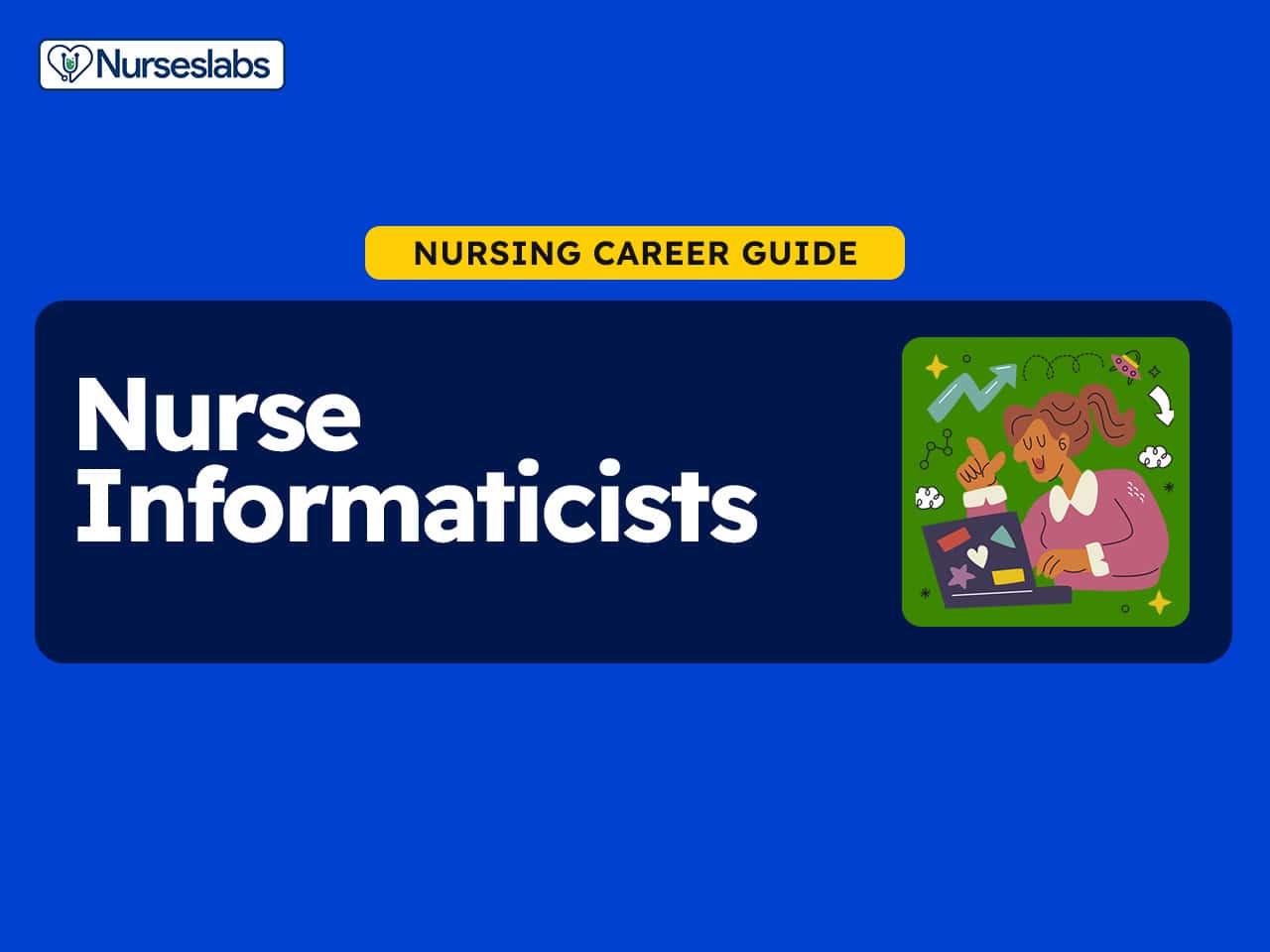
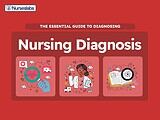



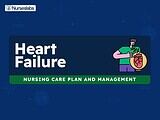
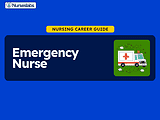
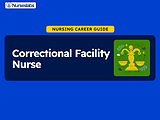

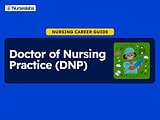




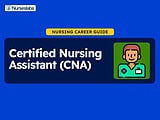




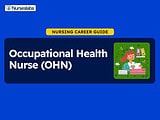





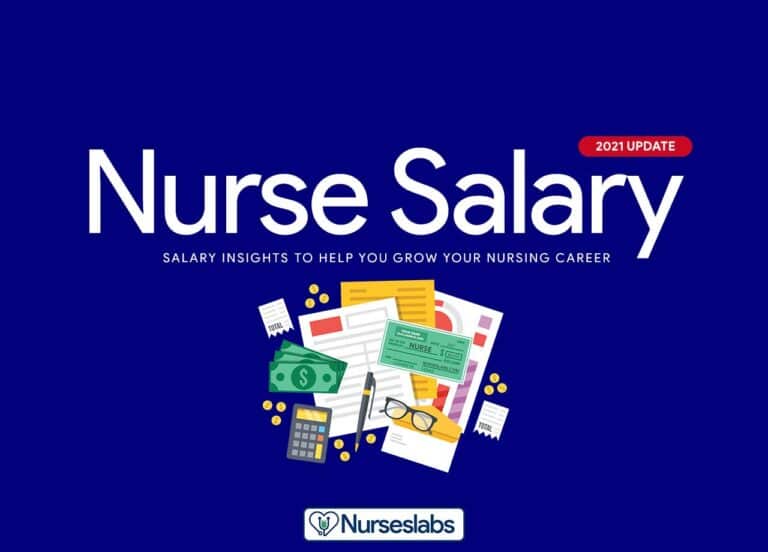


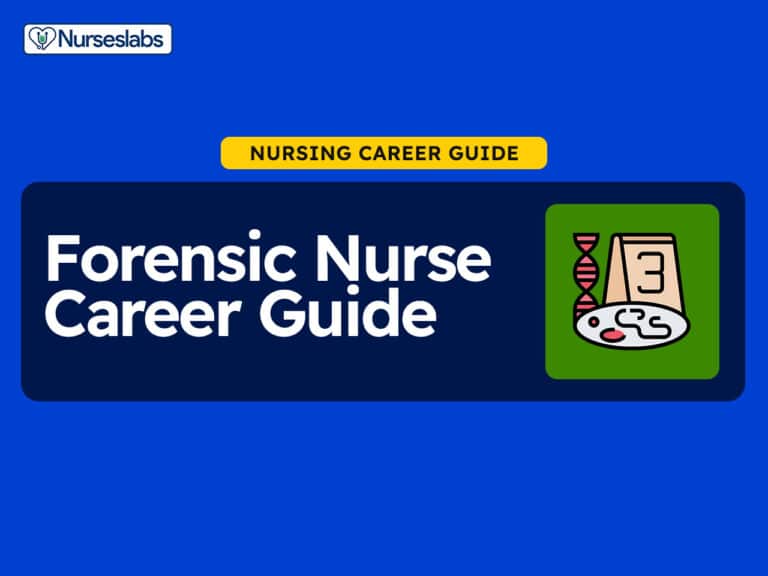

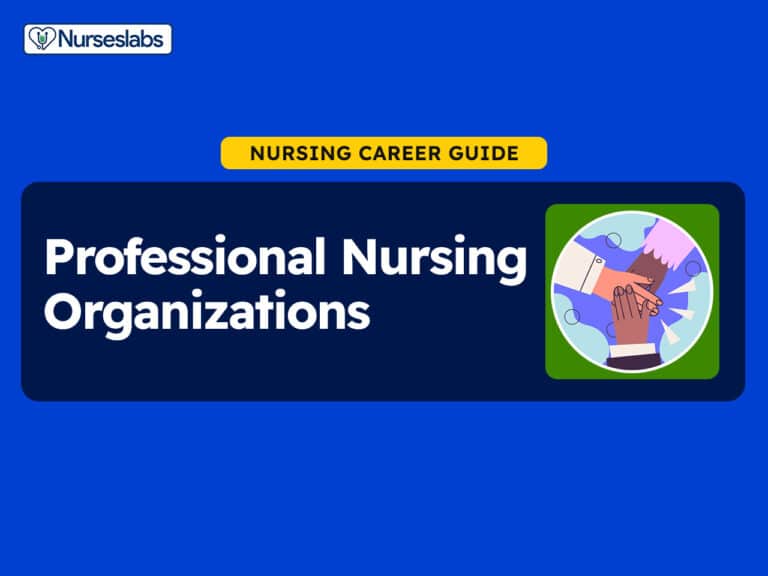
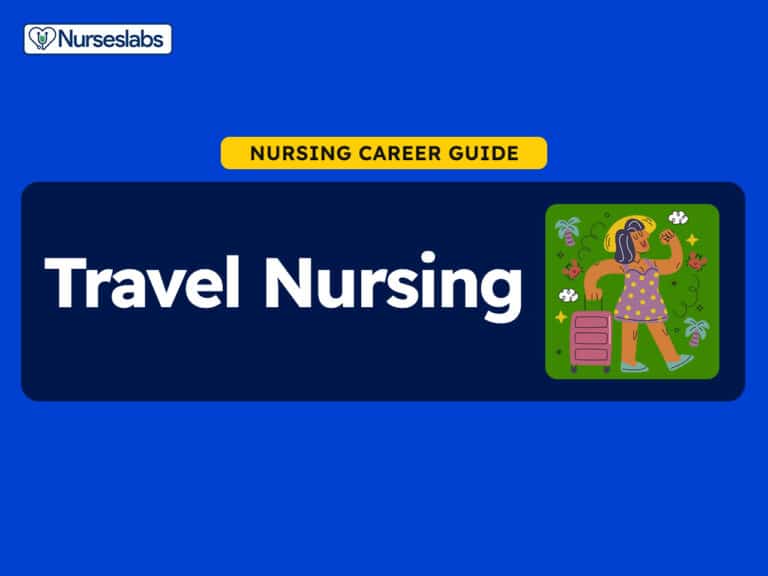

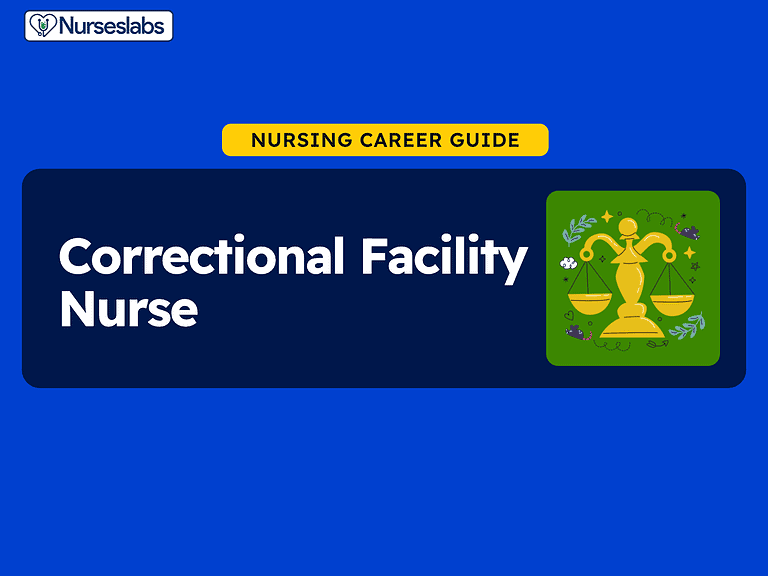
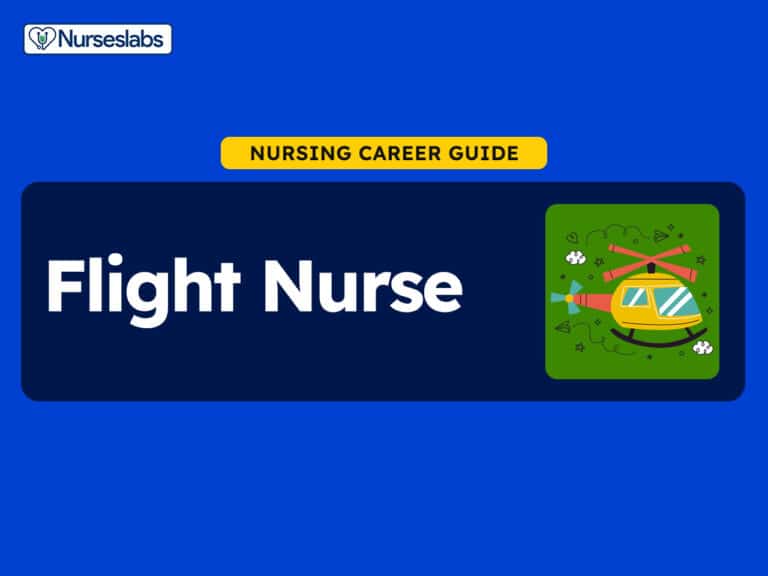

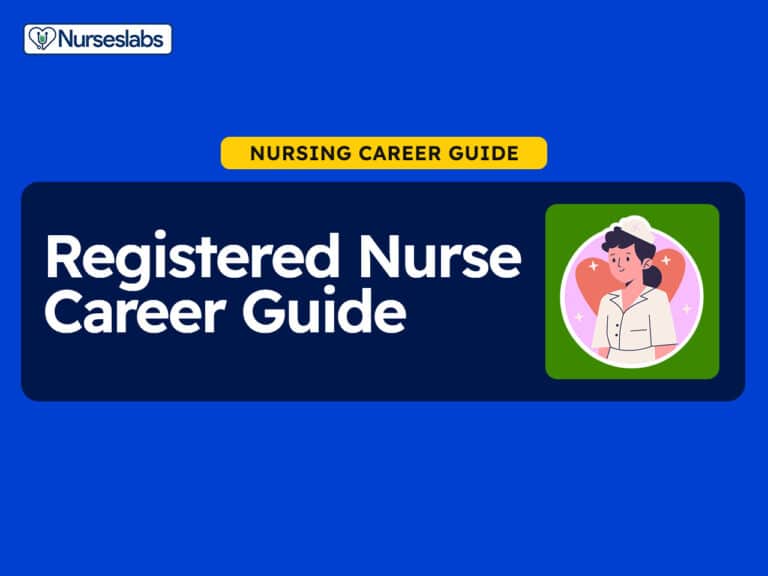
Leave a Comment